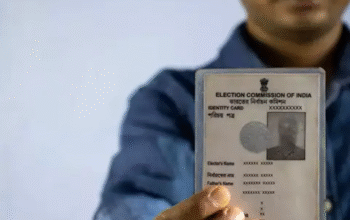The demand for sustainable solutions is growing rapidly as people become more aware of the environmental cost of traditional plastic packaging. Food packaging, in particular, contributes massively to global waste, with millions of single-use plastics ending up in landfills and oceans every year. To counter this problem, biodegradable food packaging products are emerging as effective alternatives. Unlike conventional plastics that take centuries to break down, biodegradable materials decompose naturally within months, leaving little to no trace behind. These eco-friendly options are not just good for the planet but also safe for food storage and appealing to environmentally conscious consumers. From plant-based containers to compostable cutlery, businesses are increasingly adopting biodegradable packaging to reduce their ecological footprint while strengthening their green brand image. Let’s explore 10 popular biodegradable food packaging products that are reshaping the way we store, serve, and enjoy food while protecting the earth for future generations.
1. Sugarcane Bagasse Containers
Made from the fibrous residue left after extracting juice from sugarcane, bagasse containers are sturdy, heat-resistant, and fully biodegradable. They are an excellent substitute for Styrofoam boxes used in takeaways. Suitable for both hot and cold meals, these containers break down naturally within a few weeks under composting conditions. Their lightweight yet durable nature makes them popular among restaurants and catering services.
2. Cornstarch-Based Packaging
Cornstarch packaging is made from polylactic acid (PLA), a renewable material derived from corn. It resembles plastic in texture but decomposes much faster when composted. Cornstarch packaging is safe, non-toxic, and widely used for making cups, trays, and wrappers. Since it can be molded easily, it offers versatility for different food types while significantly reducing carbon emissions compared to petroleum-based plastics.
3. Edible Packaging Films
An innovative product in the biodegradable category, edible films are made from natural ingredients such as seaweed, potato starch, or rice. These films not only protect food but can also be consumed along with it. Popular in snack wrapping and small servings, edible films eliminate waste altogether. While still new to many markets, they represent the future of zero-waste packaging.
4. Palm Leaf Plates and Bowls
Palm leaf packaging is created from naturally shed areca palm leaves. The leaves are cleaned, pressed into shape, and turned into strong, eco-friendly plates and bowls. They are heat-resistant, microwave-safe, and fully compostable. Their natural wood-like texture makes them visually appealing, ideal for eco-conscious events, parties, and outdoor catering. Unlike disposable plastics, biodegradable takeaway containers decompose within 60 days without harming the soil.
5. Mushroom Packaging
Mushroom packaging uses agricultural waste combined with mycelium—the root structure of mushrooms. It is lightweight, durable, and can replace Styrofoam trays or boxes. This packaging is fully biodegradable and composts within 30–90 days. Mushroom packaging is gaining popularity due to its minimal energy production process, making it both eco-friendly and cost-effective in the long run.
6. Compostable Paper Cups
Traditional paper cups might look eco-friendly at first glance because they are made of paper, but the reality is different. Most of these cups are lined with a thin layer of plastic to prevent leakage and hold liquids, which makes them very difficult to recycle. The combination of paper and plastic means they often end up in landfills, where they can take decades to break down and contribute to environmental pollution.
Compostable paper cups solve this issue by replacing the harmful plastic lining with plant-based alternatives, such as polylactic acid (PLA) or water-based coatings. These materials are renewable, safe, and designed to break down naturally in industrial composting facilities. When disposed of correctly, compostable cups decompose within a matter of months, leaving behind no harmful residue.
They are also highly practical—lightweight, durable, and suitable for both hot and cold beverages. This makes them ideal for cafés, restaurants, offices, and even large events where disposable drinkware is necessary. Beyond functionality, they reflect a business’s commitment to sustainability, which resonates with eco-conscious consumers. By adopting compostable paper cups, businesses reduce plastic waste, minimize their environmental footprint, and set an example of responsible consumption for others to follow.
7. Bamboo Cutlery
Disposable cutlery made from bamboo is sturdy, reusable, and biodegradable. Unlike plastic spoons and forks, bamboo utensils can be composted after use without polluting the environment. Bamboo grows quickly without fertilizers or pesticides, making it one of the most sustainable resources. Its natural look and strength have made bamboo cutlery a popular choice for eco-conscious food businesses.
8. Biodegradable Food Wrapping Paper
Food wrapping paper coated with natural wax or plant-based resin provides a sustainable option for packaging sandwiches, bakery items, and snacks. Unlike plastic cling film, this paper decomposes quickly and leaves no toxic residue. It is grease-resistant and maintains food freshness while being environmentally friendly. Many bakeries and organic food brands now prefer biodegradable wrapping papers.
9. PLA Biodegradable Bottles
Polylactic acid (PLA) is also used to make biodegradable bottles that can hold water, juices, and other beverages. These bottles look similar to conventional plastic ones but break down naturally under composting conditions. They are safe for food use, lightweight, and ideal for single-use beverage packaging. PLA bottles help reduce the reliance on petroleum-based plastics in the beverage industry.
10. Wheat Bran Plates and Containers
Another innovative product, wheat bran packaging is made by pressing natural wheat bran into durable plates and containers. These items are biodegradable, edible, and decompose within 30 days. They are resistant to heat and moisture, making them a practical choice for serving meals. Wheat bran products combine sustainability with creativity, offering a unique zero-waste dining experience.
Biodegradable food packaging is more than a passing trend—it is a necessity in today’s fight against plastic pollution. From sugarcane bagasse containers and mushroom-based trays to edible films and bamboo cutlery, these products provide eco-friendly alternatives without compromising functionality. Businesses that adopt biodegradable packaging not only reduce their environmental impact but also appeal to the growing number of eco-conscious consumers. Choosing such products demonstrates responsibility, innovation, and long-term commitment to a cleaner planet. As technology advances, biodegradable packaging options will become even more affordable and widespread. The shift from single-use plastics to sustainable alternatives is an important step toward protecting natural resources and creating a healthier future for all. By embracing these 10 biodegradable food packaging products, individuals and businesses alike can make a meaningful contribution to reducing waste and promoting sustainable living.











